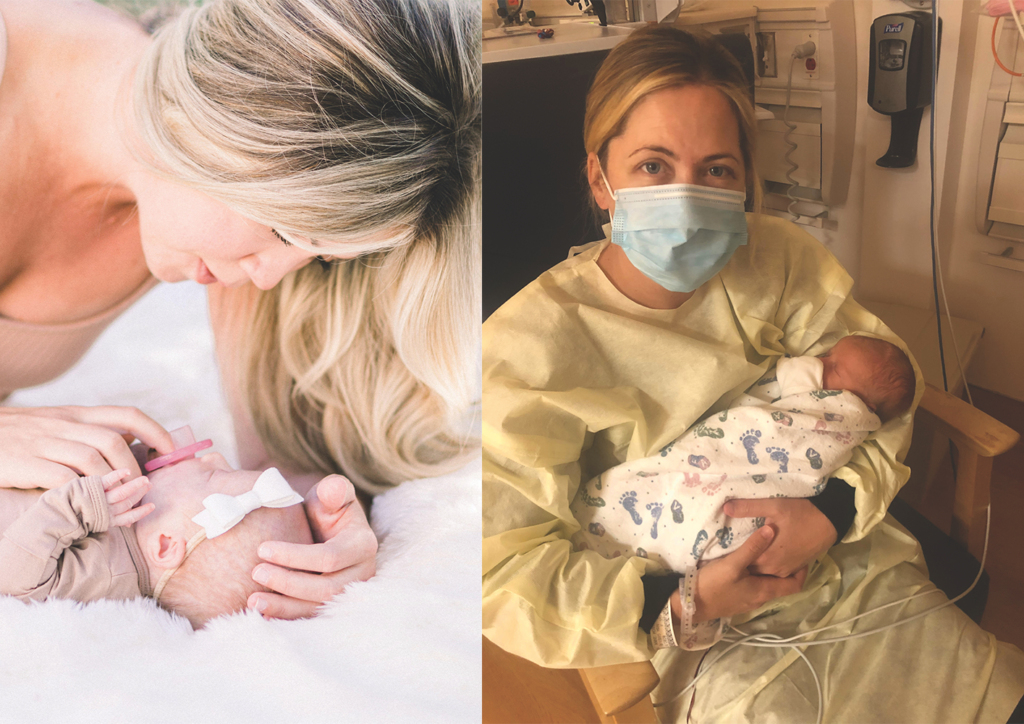
Already renowned for delivering academic-level gastrointestinal (GI) care in a compassionate setting and with more than 25 years of GI research, Saint John’s recently established the Digestive Health Institute to propel bench to bedside investigations. The new institute endeavors to expedite diagnosis, perform screenings, develop therapeutics and treatments, create less invasive procedures and enhance quality of life for patients.
The dedicated physician-researchers at the Digestive Health Institute at Providence Saint John’s apply their knowledge and experience using innovative technology and charitable donations to study and treat widespread GI and digestive disorders, advanced cancers and more. Gastroenterologists, GI surgeons and researchers, led by Anton Bilchik, MD, PhD, chief of general surgery, director of gastrointestinal and hepatobiliary and gastrointestinal research programs, along with co-leader and gastroenterologist Rudolph Bedford, MD, focus on clinical care, pioneering research and community education to alleviate digestive diseases and GI cancers. Benefitting from the collaborative atmosphere at Saint John’s, the Digestive Health Institute provides patients with highly coordinated, multidisciplinary specialty care together with the Cancer Institute, other in-hospital specialties and community partners throughout Los Angeles.
Together with the generosity of donors, the Digestive Health Institute looks to transform health care by offering education for prevention, early detection and effective treatments with the ultimate goal of discovering cures.
- PREVENT — Encouraging healthy habits
- DETECT — Promoting regular screenings
- TREAT — Prescribing medications and therapies
- CURE — Utilizing state-of-the-art technologies
A TEAM OF INNOVATORS
Influential doctors, Anton Bilchik, MD, PhD, and Rudy Bedford, MD, are co-directors of the Digestive Health Institute at Saint John’s. They lead a stellar team of gastroenterologists, GI surgeons and researcher scientists. This esteemed group of medical professionals are on course to accomplish meaningful and measurable initiatives for screenings, clinical care and research including clinical trials, as well as providing community education regarding gastrointestinal and digestive health.
Dr. Bilchik, chief of general surgery, director of gastrointestinal and hepatobiliary and gastrointestinal research programs, is one of the country’s leading specialists in gastrointestinal cancers and surgical oncology. He has assisted in establishing national guidelines and quality measures for cancer patients to improve staging in colon cancer and pioneered techniques and minimally invasive approaches for liver and pancreas cancers. Dr. Bilchik serves as an investigator on international multi-center clinical trials and has published more than 220 studies in peer-reviewed medical journals including JAMA Surgery, the Journal of Clinical Oncology, Annals of Surgery and Gastroenterology.
Dr. Bedford is a leading gastroenterologist in Los Angeles and an authority on pancreatic and biliary diseases. He is a prominent interventional endoscopist, highly skilled in diagnostic and therapeutic endoscopic retrograde cholangiopancreatography (ERCP) and endoscopic ultrasound (EUS).
Philanthropic members of our community enable Dr. Bilchik and Dr. Bedford to assemble a team of world-class physicians and scientists specializing in gastroenterology, gastrointestinal cancers and other digestive specialties to achieve the ambitious goals of the Digestive Health Institute. Your donations help attract and retain highly subspecialized physicians who treat common disorders including irritable bowel syndrome (IBS) and fatty liver disease, and who share the same dedication Saint John’s has to our patients.
COMPASSIONATE CLINICAL CARE
The Digestive Health Institute provides state-of-the-art clinical care using an integrative and holistic approach to patient care. Whether coming in for a routine screening or a surgical procedure, patients at Saint John’s feel uniquely cared for as individuals and not labeled as their procedure or diagnosis. Feeling seen and heard is a testament to the dedication and caring of the physicians, nurses, technicians, staff and administrators who interact with our patients every day.
Because early detection offers more treatment options and cures, our medical team is dedicated to helping alleviate anxiety and encouraging patients to be proactive in receiving treatment for digestive issues. For disorders such as IBS, inflammatory bowel disease (IBD), gastroesophageal reflux disease (GERD) and diverticulitis, patients shouldn’t suffer with a treatable condition. And regular digestive health screenings, such as colonoscopy, can save lives when cancer is discovered in early stages. Funding to expand our facilities with state-of-the-art equipment for advanced endoscopy helps accommodate the expanded demand for screenings and minimally invasive procedures.
Beyond the exceptional care of our Digestive Health Institute team, the close proximity of medical experts in other fields at Saint John’s provides the opportunity for specialists in other medical specialties to consult and coordinate patient care. Highly coordinated, integrated care involves GI experts as well as interdisciplinary collaboration with the Cancer Institute, Bariatric Surgery and Metabolic Weight Loss Center and other medical departments at Saint John’s.
Charitable gifts help us deliver patient benefits that transcend traditional medical care including supportive services provided by patient navigators, nutritionists and mindfulness specialists. Optimal patient care is attained by treating the whole person and providing the most current, minimally invasive tests and therapies delivered with dignity and compassion.
INNOVATIVE RESEARCH & CLINICAL TRIALS
Research projects are already underway at the new Digestive Health Institute focusing on community screenings and early onset colorectal cancer.
Colorectal cancer (CRC) is the second most common cause of cancer-related death in American men and women with 145,000 annual diagnoses and 53,000 deaths. Between the years of 1975 and 2000, there was a 50 percent decline in colorectal cancer incidence and mortality attributed to routine screening.
Therefore, improving the number of colon cancer screenings for those who lack insurance, have poor access to health care, low socioeconomic status or are from racial/ethnic minority groups with low screening rates is the goal of the Colorectal Cancer (CRC)-Community Health Action Teams (CHAT) Project.
Working with Stand Up to Cancer, the CRC-CHAT Project is a three-year study with three specific aims:
- Support CHATs in designing and executing a tailored community campaign to increase CRC screenings;
- Assess the impact of the CHAT-led community-based campaigns on community-level CRC screening rates;
- Produce a toolkit for helping other communities build upon the CHAT approach within their local communities.
The Early Onset Colorectal Cancer (EOCRC) Research Project uses molecular multi-omics (transcriptome, genome, methylome, proteome) interrogation approaches to address the concerning trend of the 4- to 5-fold increase in the number of early onset colorectal cancer cases found in young people (under 50 years of age). Digestive Health Institute researchers investigate potential clues as to why there is an earlier onset of CRC and uncover new information for future studies using archived specimen tissues from elective surgeries at Saint John’s Cancer Institute and other cancer centers within the Providence Health System.
Devoted to making breakthroughs at the Digestive Health Institute at Saint John’s, based on research findings, scientists will work with physicians to conduct clinical trials taking breakthroughs directly to patients. Participants in clinical trials assist investigators in determining if new drugs, therapies or treatments are safe and effective.
The CRC-CHAT and EOCRC Research Projects can help us achieve the national benchmark of 80 percent colorectal cancer screening rate in our community and learn who is at higher risk for CRC and why. Digestive Health Institute studies and clinical trials are possible through benevolent donations that allow us to make the greatest impact in the community—for our patients and ultimately patients everywhere.
EXPANDING EDUCATION
Endowments in education save lives. In medicine, education is required across the board. From continuing education for medical staff and training physicians on new equipment/procedures, to developing fellowship programs for specializing doctors and instructing the public on how to guard their health, education at the Digestive Health Institute is closely intertwined with our research goals.
Funding for community outreach improves health outcomes through education and preventive services such as screenings. Because people may not have time or methods to visit medical facilities, performing neighborhood events featuring screenings and inviting the media to cover these events have been effective in overcoming barriers to receiving health care and getting the word out.
Information can lead to early detection that makes diseases easier to treat and increases survival rates. In addition, treatment costs are significantly less expensive when diseases are caught sooner. Investing in projects, such as our partnership with Stand Up to Cancer, helps spread the word about the importance of colon cancer screenings, and alerting younger adults to have their first screening at age 45 makes a positive difference to patients throughout the region as well as nationwide.
The Digestive Health Institute remains committed to the power of education in health care to save lives through prevention, detection, treatments and cures. We invite like-minded supporters to join us.
YOUR SUPPORT MAKES IT POSSIBLE
To accomplish these ambitious goals, the Digestive Health Institute counts on our generous donors. Patients with advanced GI problems come to Saint John’s from across the country for the expertise and compassionate care that most community hospitals can’t offer. Your philanthropy allows us to expand the scope of services in our comprehensive, world-class program, update our facilities with state-of-the-art equipment, attract internationally renowned talent, remain at the forefront of discovering innovative treatments and reach those in underserved communities.
When it comes to the digestive system, researchers and physicians have a lot on their plates. Your patronage benefits all aspects of digestion that people experience every day. From treating mild digestive disorders to performing lifesaving surgeries, your benevolence improves and saves lives.
Our Partner in Excellence is You.
DONATE NOW

